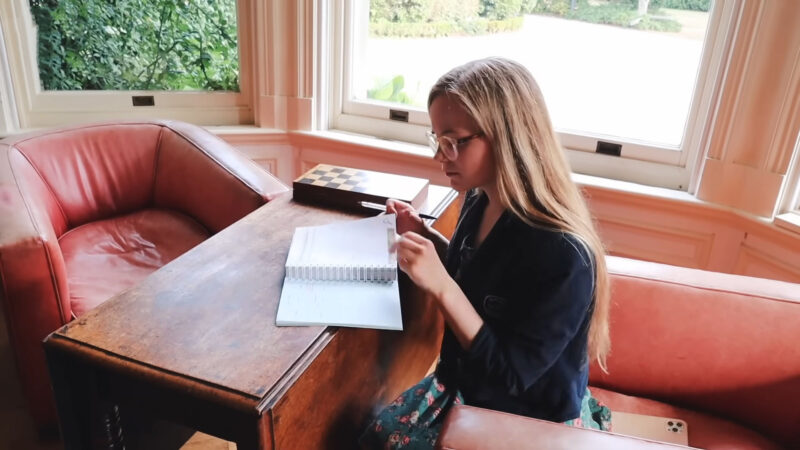During your academic journey, you’ll encounter numerous challenges and opportunities. The key to navigating this journey successfully lies in adopting effective study habits tailored to your unique learning style. Drawing from personal experience and expertise, I’ve compiled a list of ten invaluable educational tips that have transformed my academic life and can do the same for you. Let’s dive in!
1. Set Clear, Achievable Goals
Setting goals is akin to plotting a map for your academic journey. Without them, you might find yourself wandering aimlessly, unsure of your destination.
Every semester, I sit down and outline what I want to achieve. These aren’t just grade-oriented but also skill and personal development targets. For instance, while aiming for an ‘A’ in calculus is great, aspiring to master a particular concept or technique can be equally rewarding.
- SMART Goals: When setting goals, ensure they are Specific, Measurable, Achievable, Relevant, and Time-bound. This framework has always helped me stay on track and measure my progress effectively.
- Visualize Your Success: I often create a vision board or journal where I jot down my goals, accompanied by images and quotes that inspire me. This visual representation serves as a daily reminder and motivation.
2. Organize, Organize, Organize!

The organization is the backbone of effective studying. It’s not just about having a tidy desk but also about structuring your time and tasks efficiently.
In my early years as a student, I often found myself overwhelmed with assignments, readings, and projects. It wasn’t until I embraced the art of organization that I began to see a significant improvement in my productivity and stress levels.
- Prioritize Tasks: Not all tasks are of equal importance. I use the Eisenhower Box technique, categorizing tasks based on their urgency and importance. This helps in focusing on what truly matters.
- Digital Tools: Leveraging apps like Trello, Notion, or Google Calendar can be game-changers. They’ve been instrumental in helping me manage my tasks, set reminders, and allocate time effectively.
3. Embrace the Power of Breaks
Continuous studying can lead to diminishing returns in terms of retention and comprehension. Breaks, contrary to some beliefs, aren’t a sign of laziness but a strategic move to enhance productivity.
During my intense study sessions, I’ve found that after about an hour, my concentration starts to wane. Instead of pushing through, I’ve learned the value of short, rejuvenating breaks.
- The Pomodoro Technique: This is a time management method I swear by. It involves studying for 25 minutes straight and then taking a 5-minute break. After four cycles, take a longer break. This keeps the mind fresh and reduces burnout.
- Mindful Breaks: Instead of mindlessly scrolling through social media during breaks, I opt for a short walk, some light stretching, or even a quick meditation session. These activities help in resetting the mind and preparing it for the next study session.
4. Craft Your Ideal Study Space

Your environment plays a pivotal role in your study efficiency. A dedicated, distraction-free zone can significantly boost concentration and productivity.
I’ve experimented with various study spots over the years, from bustling cafes to silent libraries. However, personalizing my own space at home has yielded the best results.
- Personal Touch: Adorn your study area with items that inspire and motivate you. For me, it’s a mix of plants, motivational quotes, and soft lighting. These elements create a serene environment conducive to learning.
- Stay Clutter-Free: A cluttered space often leads to a cluttered mind. I make it a ritual to declutter my desk at the end of each study session. This ensures I start fresh each time, free from distractions.
5. Collaborative Learning
While solo study sessions have their merits, collaborative learning has immense value. Engaging with peers can offer fresh perspectives and fill knowledge gaps.
During my college years, I was part of a study group where we’d meet weekly to discuss topics, solve problems, and share resources. These sessions often led to deeper insights and understanding.
- Diverse Groups: Aim to form or join groups with diverse skill sets and backgrounds. This diversity can lead to richer discussions and a broader understanding of topics.
- Teach to Learn: One method we often employed in our group was teaching each other. Explaining a concept to someone else solidifies your understanding and highlights areas you might need to revisit.
6. Cultivate a Growth Mindset
Your attitude towards learning can make or break your academic journey. Embracing challenges and viewing failures as growth opportunities can be transformative.
I’ve faced my fair share of academic setbacks. Instead of letting them deter me, I’ve used them as stepping stones, learning from each experience and emerging stronger.
- Embrace Challenges: Instead of shying away from tough topics or assignments, I’ve learned to embrace them. Tackling them head-on, even if it means seeking help or dedicating extra time, has always been more rewarding in the end.
- Learn from Mistakes: After a disappointing grade or feedback, I take the time to analyze where I went wrong. This reflective practice ensures I don’t repeat the same mistakes and continually refine my study techniques.
7. Nourish Your Body and Mind
The connection between a healthy body and a sharp mind is undeniable. Proper nutrition and hydration play a crucial role in cognitive function and concentration.
During my most intense study periods, I noticed a significant difference in my focus and retention when I prioritized my nutrition. Skipping meals or relying on junk food led to sluggishness, while a balanced diet enhanced my performance.
- Brain Foods: Incorporate foods known to boost brain health. For me, this includes omega-3 rich foods like salmon, antioxidants from berries, and the benefits of dark chocolate for improved focus.
- Stay Hydrated: Dehydration can impair attention and long-term memory. I always keep a water bottle on my desk and set reminders to ensure I’m drinking enough throughout the day.
8. Engage in Active Learning

Passive reading can only take you so far. Engaging with the material, questioning it, and applying it in various contexts can deepen understanding and retention.
One of my professors once said, “To truly understand something, you must interact with it.” This advice has been a cornerstone of my study approach.
- Question as You Read: Instead of just consuming information, I constantly ask questions. Why is this concept important? How does it relate to what I already know? This active engagement makes the material more memorable.
- Apply Your Knowledge: Theory is essential, but application solidifies understanding. Whenever possible, I seek out practical exercises or real-world scenarios where I can apply what I’ve learned.
9. Consistent Review and Reinforcement
The human brain is prone to forgetfulness, especially with the vast amount of information students must absorb. Regular review is the antidote to this challenge.
I’ve always set aside time for weekly, monthly, and even semesterly reviews. This consistent reinforcement ensures that the material stays fresh and reduces last-minute cramming.
- Spaced Repetition: This technique involves reviewing information at increasing intervals. I use apps like Anki to automate this process, ensuring I revisit material just as I’m about to forget it.
- Teach Someone Else: As mentioned earlier, teaching is a powerful review tool. I often explain concepts to family or friends, which not only reinforces my understanding but also highlights areas I might need to revisit.
10. Embrace Technology and Resources

We live in an age where countless resources are at our fingertips. Leveraging technology can make studying more efficient and enjoyable.
Throughout my academic journey, various apps, websites, and online communities have been invaluable in supplementing my studies and addressing challenges.
- Educational Platforms: Websites like Khan Academy, Coursera, and edX offer courses on a plethora of topics. Whenever I struggled with a concept, I’d seek out additional lectures or exercises on these platforms.
- Online Communities: Platforms like Reddit, Stack Exchange, and Quora are treasure troves of knowledge. Engaging with these communities, asking questions, and contributing where possible has enriched my learning experience.
FAQ
How important is sleep in a student’s study routine?
Sleep is crucial. It aids memory consolidation, cognitive functions, and rejuvenates the mind. A consistent sleep schedule enhances focus and productivity during study sessions.
Are study aids like highlighters and flashcards effective?
Absolutely! Tools like highlighters can help emphasize key points, while flashcards leverage active recall, making information retrieval more efficient.
How can I handle distractions, especially digital ones?
Set specific times for study without digital interruptions. Use apps like “Forest” or “Focus@Will” to reduce smartphone or online distractions. Also, consider periodic digital detoxes.
How often should I change my study techniques?
It’s essential to assess your techniques periodically. If you find a method isn’t yielding results or you’re losing interest, it might be time to switch things up.
Can exercise benefit my study routine?
Definitely! Regular physical activity can boost brain health, improve mood, and increase concentration. Even short breaks with light exercises can be beneficial.
Final Words
Embarking on an academic journey is both challenging and rewarding. While the road might be fraught with obstacles, the right strategies, mindset, and resources can make all the difference. Remember, it’s not about perfection but progress. Stay curious, stay dedicated, and never stop learning.
